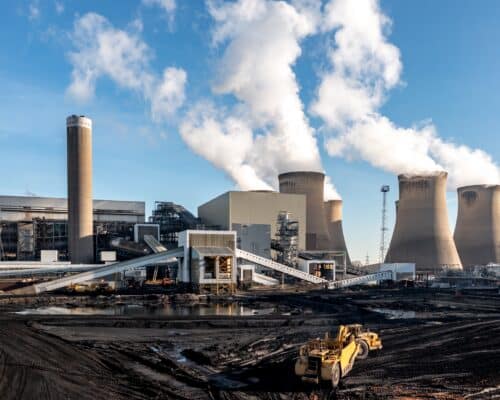Fossil Fuel
Global Hydrogen Market: Size, Growth and Future
Hydrogen demand is increasing, and production capacity will need to rise. However, this capacity should focus on low-carbon green hydrogen, which can be a major energy carrier in the net-zero energy transition.
South African Coal Exports Decline for the Fourth Consecutive Year
South African coal exports continued to decline for the fourth consecutive year, especially in Asia after demand peaked in 2019.
Thailand’s LNG Development Is Not The Way Forward For Its Energy Sector
Thailand is one of the few Asian countries ramping up LNG procurement as prices for the fuel dip. This comes as it needs gas to drive a post-COVID economic recovery. However, lower prices are only part of the story. The other part is that Thailand is a natural gas-based economy.
Hydrogen Production Methods from Fossil Fuels Overshadow Alternatives
Today, 99% of hydrogen is produced using fossil fuels. However, green hydrogen can become a viable alternative.
Hydrogen Economy – Meaning, Benefits and Future
The hydrogen economy is the idea of a world partially powered by hydrogen. If green hydrogen becomes the predominant production method for hydrogen, it will play a critical role in the world's low-carbon future. However, green hydrogen needs to be financially viable and requires ongoing support from the public and private sectors.

Japan’s G7 Fossil Fuel Push – Podcast
Susanne Wong, at Oil Change International, speaks about Japan and the fossil fuel push at the G7.
Energy Security in Bangladesh is Threatened by Fossil Fuels
The fossil fuel dependence of Bangladesh has significantly impacted its economy. The country should no longer bear the exorbitant power costs and unreliable supply, especially when better, cleaner and cheaper options exist.
Japan’s Ammonia Plans Threaten the Carbon Emissions Reduction of Southeast Asia
Aside from a few positive outcomes, the G7 ministerial meeting ended disappointingly due to a final communique with vague wording and weak commitments. This sets the stage for Japan to continue doing business as usual.
How the Unreliability and Unpredictability of Fossil Fuels Hurt Bangladesh
Bangladesh has suffered enough from fossil fuel import dependence and has experienced first-hand how the dirtiest fuels affect the climate. However, thanks to its clean energy potential, the country holds the keys to an independent and sustainable future.
The Electricity Sector in Bangladesh: What Comes Next?
Transitioning the power sector in Bangladesh towards renewable energy would unlock massive benefits for the country, its economy and society.
Current State And Future Of Japan’s Carbon Emissions
Japan produces the fifth-most carbon dioxide emissions annually, and in the G7, it only falls below the United States. While the country does have a net-zero goal for 2050 and an interim goal for 2030, its current decarbonisation strategy may not be feasible. It relies on decarbonising the fossil fuel industry, a strategy climate experts warn against.
Japan’s Natural Gas Dependence: A Liability For the G7
Japan imports over 90% of its natural gas. As a result, it is reliant on the global LNG market and current events to dictate supply and energy costs. This is a liability that was highlighted in 2022 due to the country's dependence on Russian natural gas. Developing a robust renewable energy grid is the only viable long-term solution.
Most Popular
Categories
-
9
-
33
-
126
-
4
-
17
-
43
-
52
-
11
-
10
-
15
-
24
-
6
-
6
-
247
-
195
-
13
-
23
-
1
-
1
-
23
-
38
-
41
-
84
-
18
-
81
-
41
-
17
-
10
-
40
-
41
-
86
-
284
-
21
-
39
-
35
-
10
-
41
-
36

